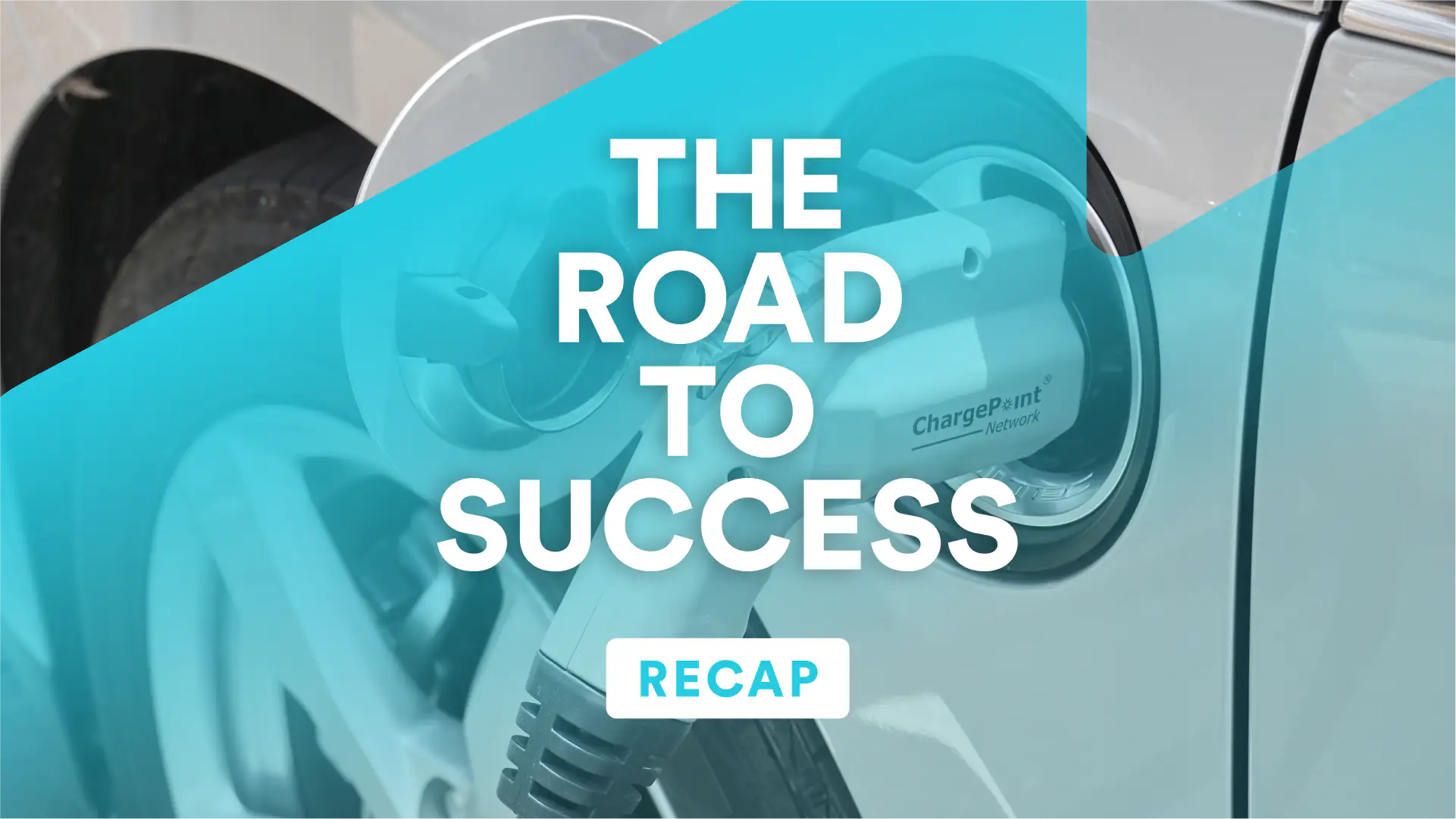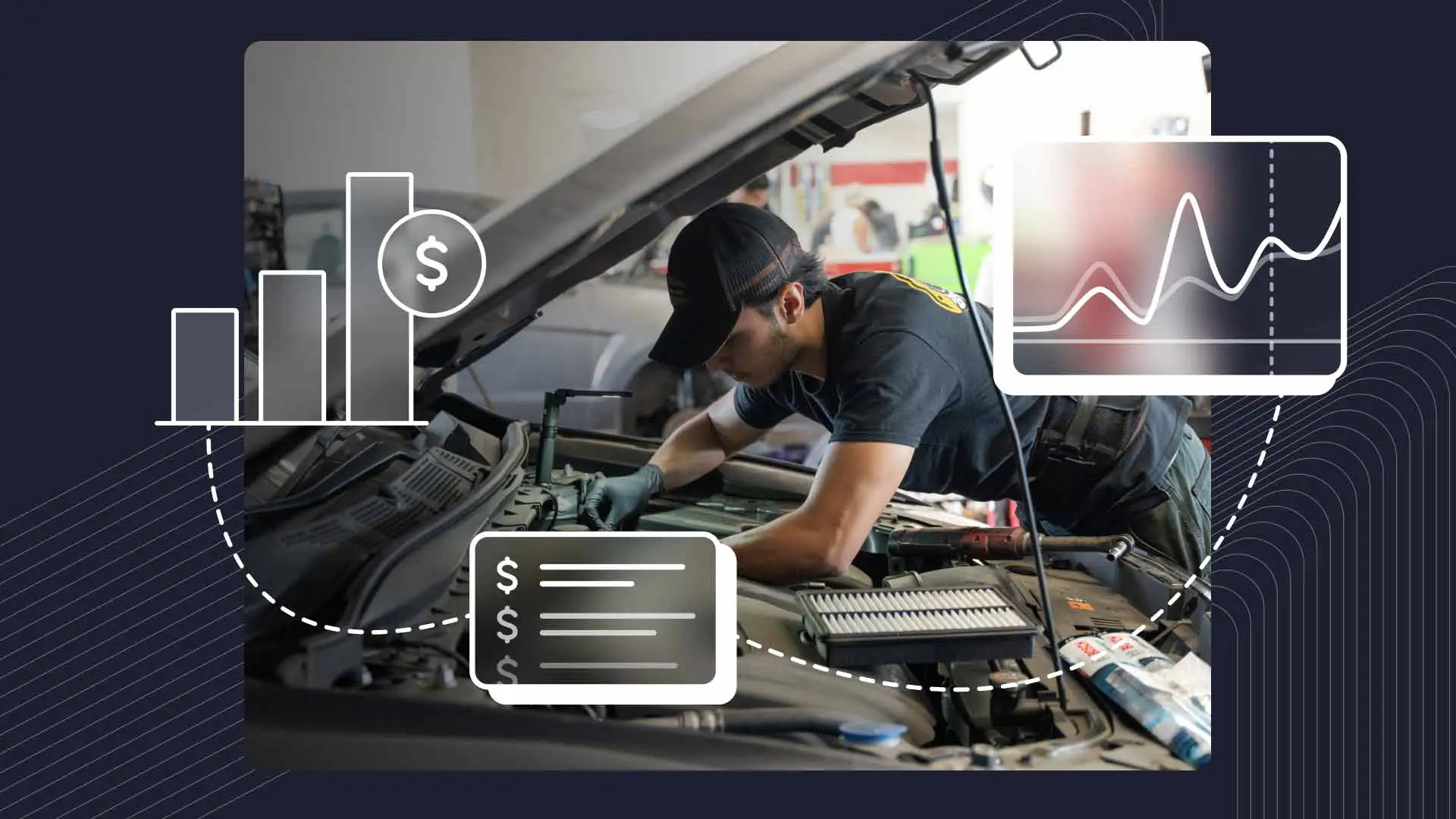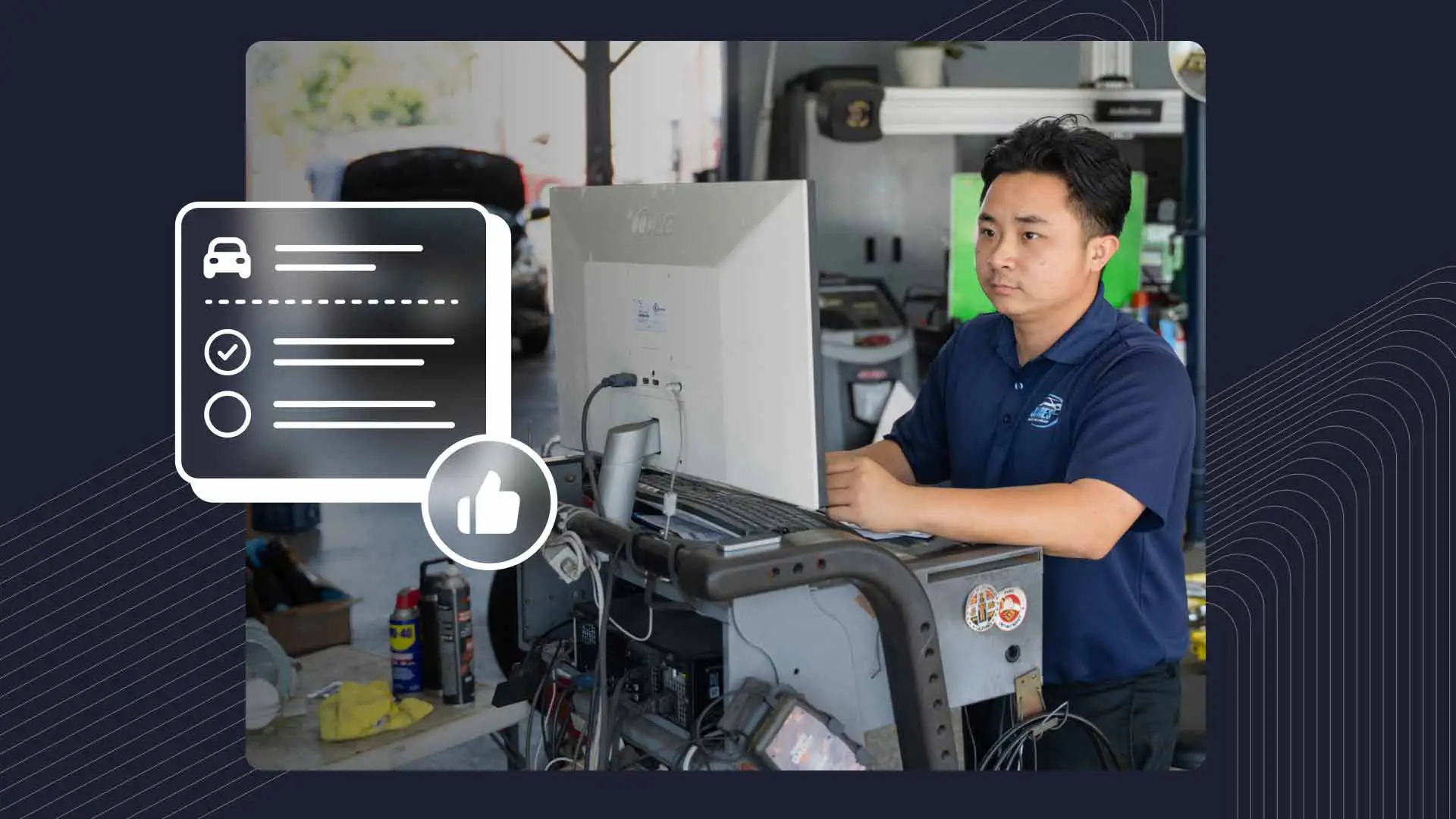In this blog post we summarize the third video in Shopmonkey’s webinar series entitled The Road To Success. This episode is entitled “Getting Tuned Up for EV Repair”. The series is designed to keep shop owners, employees, and the general public abreast of popular topics and best practices in the auto repair industry. This particular webinar explores the tremendous opportunities that Electric Vehicles (EVs) present to auto repair shops.
The hour-long presentation features Electric Garage co-owner and president Chris Salvo discussing the many ways shops can cash in on maintenance and repairs for EVs. Chris addresses this topic from two perspectives: why EV is currently important to repair shops and why it will be so in the future.
As a former employee of Tesla who received formal training from BMW, Salvo knows his stuff. The webinar begins with Shopmonkey Enablement Specialist Lukasz Konior providing stats about EVs’ importance. He reveals that major players like Tesla, Toyota, Volvo, and Mercedes Benz have significant investments in the EV market, with Volvo stating it will only manufacture EVs by 2030 and Mercedes saying it will do so in 2025. He also mentions that in December of 2021 there were 1.5 million EVs on the road and EV’s had a nearly 50 percent year over year growth rate that year.
The duo then debunks the myth that working on EVs is harder than working on Internal Combustion Engine (ICE) cars. According to Salvo, “about 80 percent of traditional and electric vehicles are the same.” Advanced EV functions do require specialized knowledge and tools. However, as Salvo goes on to explain, there’s plenty of opportunity to increase revenues.
Basic Services
Salvo comments that basic services, which auto repair software can help manage, don’t involve additional training or tools so shops “don’t have to be scared of changing tires or doing alignments.” He mentions that electric cars are on the average heavier than comparable ICE cars are and have a lower center of gravity, which contributes to more aggressive driving. Consequently, tires and wheels wear out faster on them than they do on ICE vehicles, so there’s a demand for shops to sell them, balance and rotate tires, and do alignments.
Salvo indicated that EVs rely on regenerative braking, which means that brakes need to be surfaced and have the rotors resurfaced more frequently. Another fairly common repair involves replacing the suspension, which is typically required after 50,000 to 70,000 miles, resulting in “seven or eight thousand dollars of repairs for customers,” Salvo said. Since the suspension in EVs is similar to that of an S Class Mercedes Benz, repair shops can work on these energy-saving cars without learning new skills.
Clever Services
Another good fact Salvo brought up is that since EV owners typically pay around $50,000 for an EV, they’re usually okay with paying for the wheels, tires, and suspension upgrades. Other opportunities for shops include customizing EVs configuring doors to automatically open and close upon command, or having trunks automatically open.
Since these vehicles are typically bought new, they easily come apart for shops to install these upgrades. “The trickiest thing is finding where to pull the power from,” Salvo remarked.
Also, because there’s no internal combustible engine in EVs “all of the accessories like power steering, heat and air conditioning, those all have to be standalone systems now,” Salvo said. These systems are vital, because the A/C is actually what’s responsible for cooling the engine, not just the car’s cabin. The standalone systems Chris mentioned must be serviced every two years or 20,000 miles, or customers risk getting stranded because their cars won’t start.
Genius Services
Salvo goes on to say that genius services involve things like replacing engines, transmissions, and performing advanced diagnostics “to see why cars are shorting out”. This work requires electrical knowledge, adherence to safety regulations, and tools from dealers (like Tesla). Shops can either hire talent specifically educated for this work or undergo this education themselves. Here’s a basic checklist for how shops can get ready for this aspect of EV repairs. Doing so is often worth it, as these more expensive jobs tend to pay for the additional hiring, education, and tooling necessary to fulfill them.
Key Takeaways
One of the key takeaways of the video is shops can do the majority of maintenance and repair work on EVs now, without additional investments. Basic services and clever services can be done with existing knowledge, tooling, and staff. They’re a great way for shops to widen their customer base and boost revenues.




